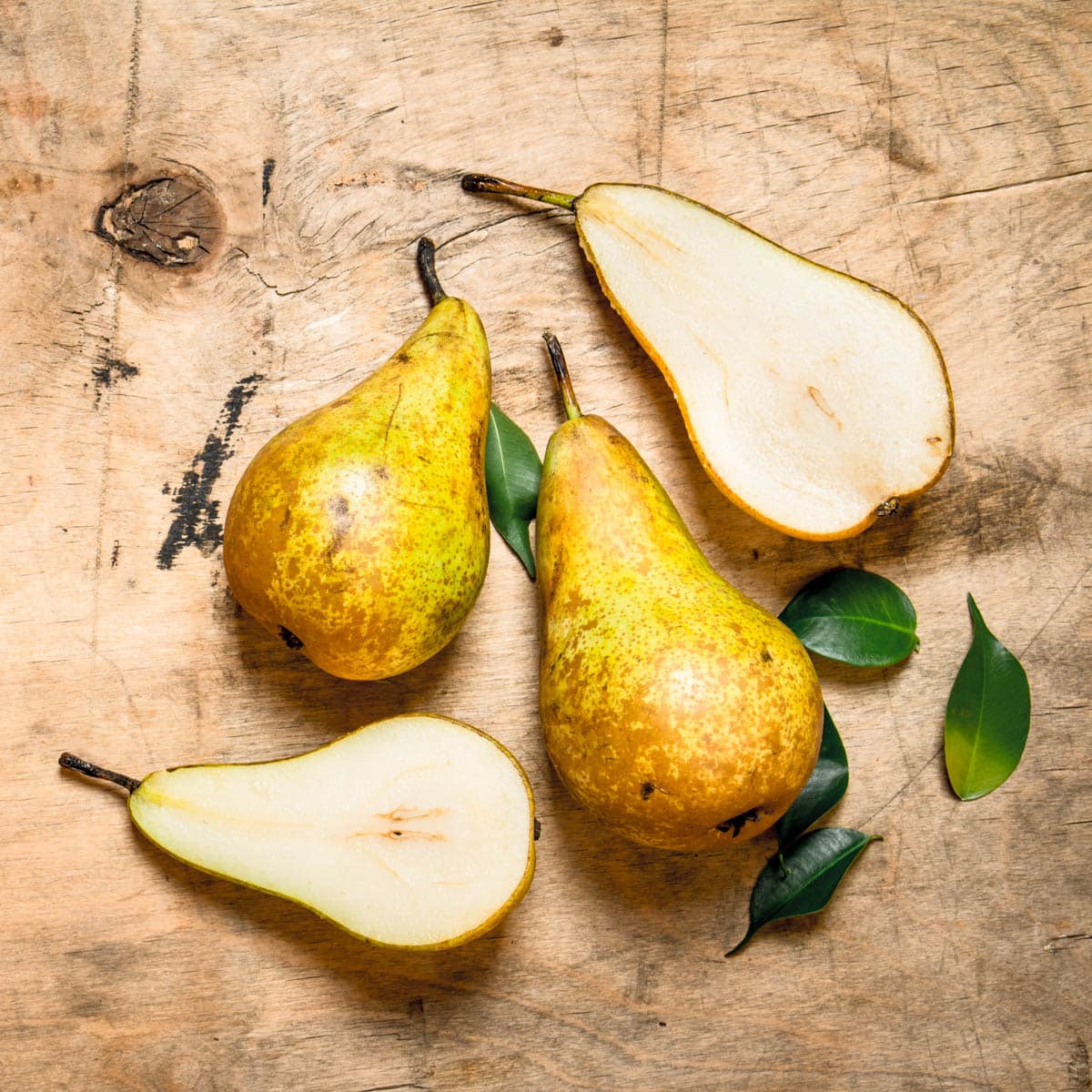How to Store Pears
If you’ve ever sunk your teeth into a sweet, succulent pear, you know there’s nothing quite like it.
Keeping these delights fresh is easy as pie. Join me in uncovering the best methods to store pears, whether they’re ripe, unripe, or cut.
How to properly store pears
Store unripe pears at room temperature until they yield to gentle pressure near the stem. Once ripe, refrigerate pears in the crisper drawer for up to a week. For long-term storage, freeze peeled and cored pear slices, or store unripe pears in a cool, humid place for winter.

Alright, let’s dig into the heart of our topic today – how to properly store pears. Pears, with their unique texture and deliciously sweet flavor, deserve our best care.
Understanding the correct storage techniques can make all the difference between a delightful, juicy pear and one that’s less than ideal.
Unripe pears
If you’re eager to bring home a batch of pears but they’re not quite ready for the spotlight, no worries. Unripe pears are simple to manage.
Leave them out at room temperature in a breathable bowl or on your kitchen counter. They need that room temp warmth to become the juicy stars we adore.
Over about a week, these hard, green pears will transform into soft, sweet, edible delights.
Ripe pears
Got your hands on some perfectly ripe pears? Great! But, if your appetite isn’t quite ready, it’s the refrigerator’s time to shine.
.To maximize their lifespan, avoid washing them until right before use. Water can accelerate spoiling, which is the last thing we want for our beloved pears!
The cool confines of your fridge slow down the ripening process, making it the ideal place for your ripe pears. Stash them in the crisper drawer if possible.
They’ll stay fresh for an additional week.
Cut pears
If you’ve got some sliced pears on your hands, storing them properly is a breeze. A simple squirt of lemon juice can help keep those pear pieces from turning brown.
Then, pop them into an airtight container and refrigerate. Enjoy these delicious bites within a few days to experience their full flavor.
| Pear Type | Storage Method | Storage Duration |
|---|---|---|
| Unripe Pears | Store at room temperature | Until ripe (a few days to a week) |
| Ripe Pears | Refrigerate in the crisper drawer | Up to a week |
| Cut Pears | Refrigerate and consume within a few days | A few days |
| Pears for Winter | Store unripe pears in a cool, dark, humid place or freeze | Throughout winter or up to a year in the freezer |
Can you freeze pears?
More pears than you can handle? It happens to the best of us. But fear not, freezing is a fantastic option.
- Start by peeling, coring, and slicing your pears.
- Dip them in a mixture of lemon juice and water to prevent browning
- Arrange your pear pieces on a tray lined with parchment paper and let them freeze.
- Transfer them to airtight bags or containers.
Your pears will be ready for smoothies, baking, or even a snack, for up to one year!
Another one that a lot of people ask is, how to freeze bananas.
How to tell if a pear is ripe
Knowing when a pear is ripe and ready for eating is a valuable skill. Pears are unique, ripening from the inside out.
A quick, gentle press near the stem can reveal their readiness.
If it gives slightly, it’s ripe and ready to enjoy. If it’s still hard, give it a few more days at room temperature.
Also, learn how to tell if kiwi is ripe or how to tell if passion fruit is ripe on my blog as well.
Storing pears for winter
You might be wondering how to keep those delicious pears around , even when they’re out of season. Luckily, with a bit of know-how, you can enjoy the sweet, juicy taste of pears throughout the cold months.
One method is to create a storage environment that mimics a pear’s natural fall ripening conditions.
For this, you’ll need a cool, dark, and slightly humid place. This could be a basement, a garage, or even a fridge set to the right temperature.
Aim for a temperature of about 30-32 degrees Fahrenheit with 90% humidity.
Place the unripe pears in a single layer on a tray or in a shallow box, ideally not touching each other to prevent bruising.
Wrap each pear in a piece of paper. This will help maintain humidity and prevent the spread of any rot between the fruits.
Inspect your pears regularly. This is crucial to catch any fruit that may start to overripen or show signs of disease. Remember to handle them gently to avoid bruising.
As you move through winter, you can take a few pears out at a time and let them ripen at room temperature. This way, you’ll have a steady supply of ripe, tasty pears throughout the season.
And what if you have a really big harvest or find a great deal at the farmer’s market and don’t have the space or conditions for cool storage?
This is where other methods, like canning and freezing, come into play. These techniques will let you enjoy your pears in a variety of dishes all winter long.
Remember, the key to successful winter storage is starting with fresh, high-quality, unripe pears. By following these steps, you can savor the goodness of pears even during the coldest months of the year.
Frequently asked questions about how to store pears
Conclusion
Keeping pears fresh and delicious is simple when you know the tricks of the trade. Whether they’re ripe, unripe, or even sliced, you now have the know-how to store pears like a pro.

Online Cooking for Beginners Course